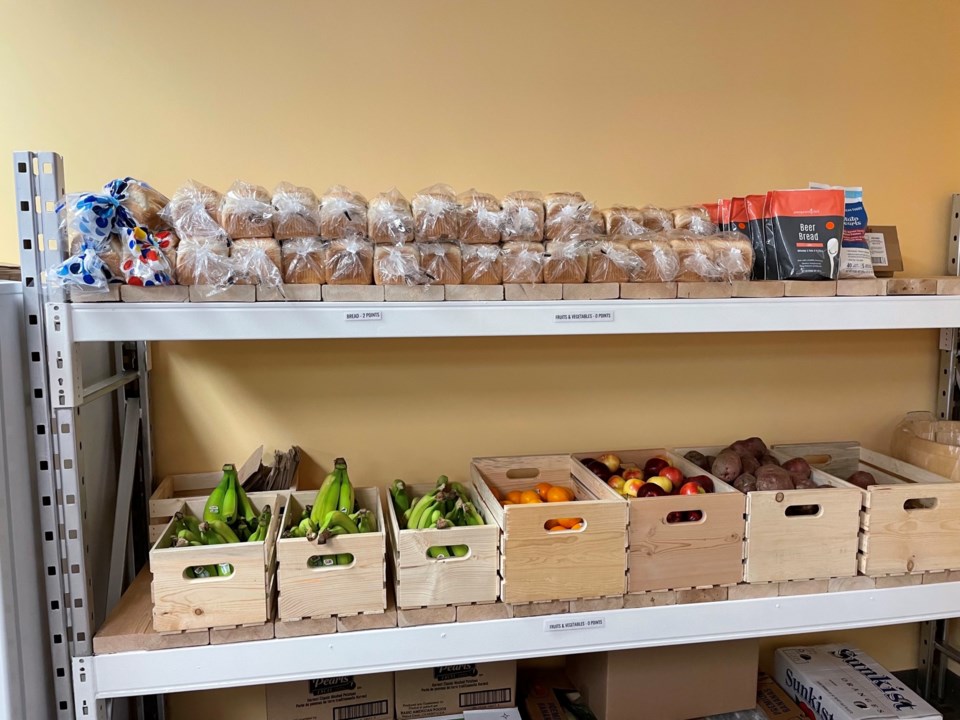The pressure of food security was eased earlier this week by the federal government, but it’s not nearly enough, according to a local food bank.
Investments from the 2023 federal budget this week – labelled a ‘Made-in-Canada Plan: Strong Middle Class, Affordable Economy, Healthy Future’ – included a grocery rebate as a $2.5-billion targeted inflation relief for up to 11-million low and modest income citizens through the Canada Revenue Agency.
Once legislation passes, single Canadians with no children can qualify for an extra $234, seniors can get an average of $225 and eligible couples with two children could receive up to an extra $467.
According to Finance Minister Chrystia Freeland, the new grocery rebate is intended to “help make up for higher prices at the checkout counter – without adding fuel to the fire of inflation.”
However, those numbers may not be as generous as the federal government might think.
“In the big picture the amount they are suggesting is almost laughable. If this is a one-time amount given annually, what are they going to do for the remaining eleven months of the year?” asked Mary Warnock asked, president of Victoria Harbour's Saint Vincent de Paul Food Bank.
Warnock explained how their monthly system works: A single person would receive a $30 gift card with $45 a hamper; a couple would get a $30 card with $55 worth of food; and a family would receive a $60 card and $65 worth of food. These are approximate amounts dependent on the stock of food in the pantry.
“We serve approximately 80 people a month and this month we are close to 95, and over 50 visits,” said Warnock who added that over Christmas 150 clients received hampers, toys and gifts for children.
“Our numbers are rising, not decreasing,” Warnock stated, noting the majority are individuals on disability, seniors, and young families. “Our clients are having difficulty meeting their mortgage and/or paying their rent, if they can even find housing. At the end of the month after paying their bills, there is little left to buy groceries for their families.
.The Saint Vincent de Paul Food Bank services three municipalities in Victoria Harbour, Midland and Penetanguishene, with Warnock requesting that clients only choose one location although no one in need would ever be turned away. She added that there are other food banks in the area at the Salvation Army, Georgian Bay Food Network, and Georgian Bay Native Friendship Centre.
“Food banks are not the answer. We would like to see a day that there is no need for us at all; it is but a bandage on a broken society,” said Warnock.
As suggestions, Warnock put forward that the construction of government housing would offer attainable housing as the key to deliver social services for those not making a living wage, and greater free training and education opportunities would improve the workforce.
In 2019, the Simcoe County Food Council released a framework which addressed household food insecurity as well as community food security, recognizing food as a human right. Goals included support for income and housing solutions, increased physical access to sufficient and nutritious food for everyone, support for the local agri-food sector, and more.
On a local level, Warnock said: “I am currently working on a project with a young woman who came to me with the idea of having (a community food initiative) Sharing Cupboards in each of our villages Port McNicoll, Victoria Harbour, and Waubaushene. We are in talks with our three branches of the Royal Canadian Legions for a location in their parking lots.”
Until food security is no longer an issue, Warnock said that food and monetary donations are welcome “so there is no stigma or judgment” when a person is in need of a food bank service.
“I try to remain hopeful that one day we are all able to live without a need for our services,” Warnock concluded. “Housing is key and I wish they had a plan in their budget for fixing that issue above all.”



